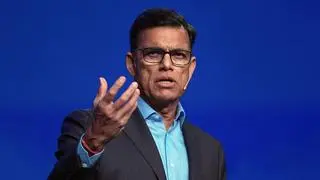I was invited by the CEO of a technology enterprise, offering back-end service for clients overseas, to support his direct reportees, eight of them, of which one was a lady, to understand how they were using and demonstrating power in their execution of tasks.
The topic seemed complex so I met each of the eight persons, first individually and then as a group to assist them in understanding their ‘power orientation’, as suggested by the CEO.
The one-on-one meeting with each of them revealed the lack of clarity between personal power and power as embodied in the role they played in the organisation.
Hence a group setting was required to create the environment for a possible dialogue, where each could describe their appreciation of ‘role power’ and ‘ personal power’.
As the conversation developed it became abundantly clear that role-imbued power was very different from what personal power signified. The group first decided to dilate upon role embodied power, for they thought that was less esoteric and evident in the manner it was being communicated in the organisation.
The group listed the following ways in which they demonstrated role-based power and its implications:
1. Coercive power: This was power that they often used when they were impatient for results, short of time, unwilling to dialogue or urgently required outcomes. The power displayed tended to be punitive and was often employed when dealing with subordinates.
2. Referred power: This was power they enjoyed when a problem was referred to them by a colleague, a peer, their superior, especially when they were considered better placed to sort things out.
3. Expert power: This power they enjoyed when they were sought out for their superior knowledge or domain expertise.
4. Reward power: This was power they used to acknowledge good performance or offer appreciation and, in some cases, even material rewards, largely to subordinates.
5. Legitimate power: This was the power they enjoyed because of their position in the hierarchy.
After they had listed the various forms of role power, I invited them to examine a model that I had learnt from reading Leon VanderPol’s book, ‘A shift in being’ (Imaginal Light Publishing), where he writes about personal power as explained by author Janet Hagberg, in her book ‘Real Power: The Stages of Personal Power in Organizations’.
Vanderpol has identified six stages of personal power. They are:
1. Powerlessness
2. Power of Association
3. Power of Achievement
4. Power of Reflection
5. Power of Purpose
6. Power of Wisdom
The first three aspects of personal power are drawn from outside the individual and are essentially external.
A person feels powerless when he feels inadequate, when he lacks conviction, when he experiences fear or when he feels less of who he actually is. Powerlessness thus causes a person to feel as a victim.
Power of Association comes from the company we keep and has little or no relevance to either role or position, yet it surely bears heavily on status.
Power of Achievement comes from an external definition of success which most often are standards that are either set for us or set by us for ourselves. Meeting and exceeding those benchmarks are seen as achievements.
All the three powers, as was admitted by the group, rely largely on external approval, endorsement and definition.
The three stages arise from what Vanderpol termed ‘drama and situation’ i.e., inherent in them is the quality of doing.
When such is how we experience or manifest personal power we encounter a ‘crisis of integrity’, as we struggle with our autonomy and authenticity. It is only when we move away from externalities and begin to see our ‘true worth’ can we emerge from a larva into a butterfly.
How may this happen?
Our personal power helps us move to stage four, when we begin to reflect on ‘who we are’ and ‘what can we offer from our being?’ Reflection helps us go within and examine our intent.
The wall of imagined resistance begins to crumble and we start exploring our ‘Purpose.’ When we experience the Power of Purpose and are committed to it, we graduate to the Power of Wisdom. The Power of Wisdom is not cognitive but flows from an ‘open heart.’
Unlike drama and situation, both of which bind us to living transactionally, Power of Reflection, Purpose and Wisdom expose us to choices and opportunities and may help us transform to a higher level of existence.
When the group began to examine their Personal Power they realised that while the role is about ‘doing’, Personal Power is about ‘being and becoming.’
They concluded that if they could separate role from Personal Power and know where they were coming from when interacting, whatever be the role, such as boss, father, son etc, they would be able to enhance their personal effectiveness and not be trapped in only either/or.
The most significant realisation was that a role’s value will fluctuate depending on how the recipient of ‘from role’ interaction is impacted, yet personal power that flows from ‘reflection, purpose and wisdom’ is constant and is unaffected by the vagaries of role-endorsed power.
Personal power is evident and one does have to make a statement, while role-based power might need more often than not to be defended and explained.
In summary, the group understood that personal power is never on probation while role-based power waxes and wanes based on the play out of ‘drama and situation’
(The writer is a visiting professor at the Great Lakes Institute of Management, Chennai and is an organisational and behavioural consultant. He can be contacted at ttsrinath@gmail.com)







Comments
Comments have to be in English, and in full sentences. They cannot be abusive or personal. Please abide by our community guidelines for posting your comments.
We have migrated to a new commenting platform. If you are already a registered user of TheHindu Businessline and logged in, you may continue to engage with our articles. If you do not have an account please register and login to post comments. Users can access their older comments by logging into their accounts on Vuukle.